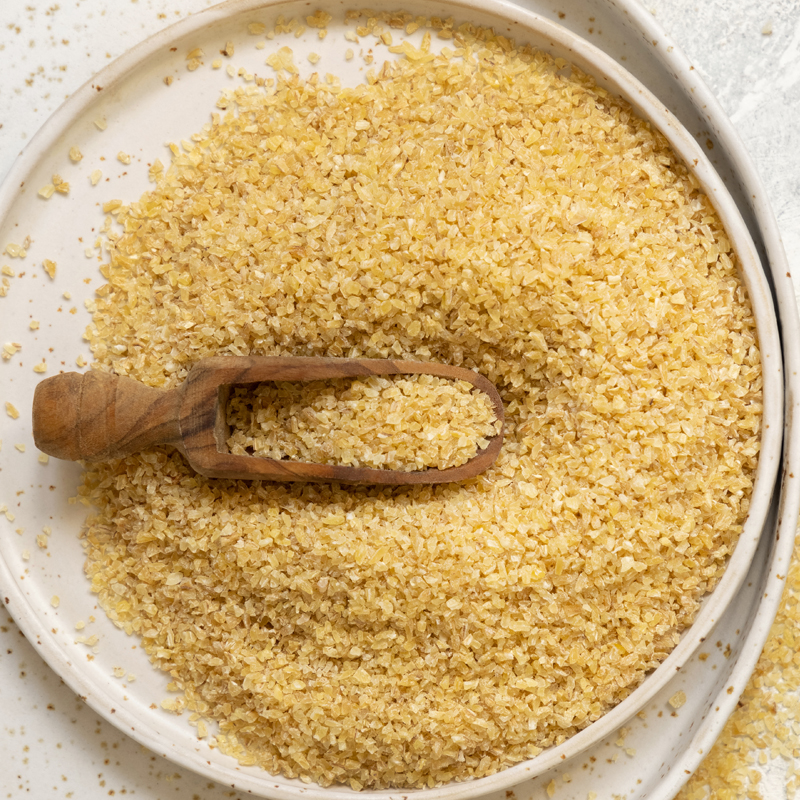
100 gr |
-- |
|
|---|---|---|
| Carbohydrate (gr) | 15.04 |
4928.47 |
| Protein (gr) | 3.59 |
1176.23 |
| Fat (gr) | 12.46 |
4083.43 |
| Fiber (gr) | 1.36 |
445.97 |
| Cholesterol (mg) | 14.64 |
4795.8 |
| Sodium (mg) | 325.27 |
106557.75 |
| Potassium (mg) | 392.16 |
128471.4 |
| Calcium (mg) | 78.15 |
25603.27 |
| Vitamin A (mg) | 46.04 |
15084.01 |
| Vitamin C (mg) | 6.16 |
2019.31 |
| Iron | 0.62 |
203.1 |
Bulgur is a versatile and highly nutritious food made from cracked and partially cooked wheat. It is a staple ingredient in Middle Eastern and Mediterranean cuisines, prized for its nutty flavor, quick cooking time, and impressive health benefits.
The calories in bulgur are 357 calories per 100 grams.
Bulgur is an excellent source of essential nutrients:
Bulgur’s versatility makes it easy to incorporate into a variety of dishes:
Due to its high fiber content and nutritional value, bulgur can be used as an alternative to consuming large amounts of bread. For individuals looking to reduce refined carbohydrate intake, bulgur provides a satisfying and healthier option.
Bulgur is a nutrient-rich, easy-to-cook grain that can enhance any diet. Whether you’re seeking a high-fiber alternative to bread, a heart-healthy grain, or a versatile ingredient to add to meals, bulgur is an excellent choice.